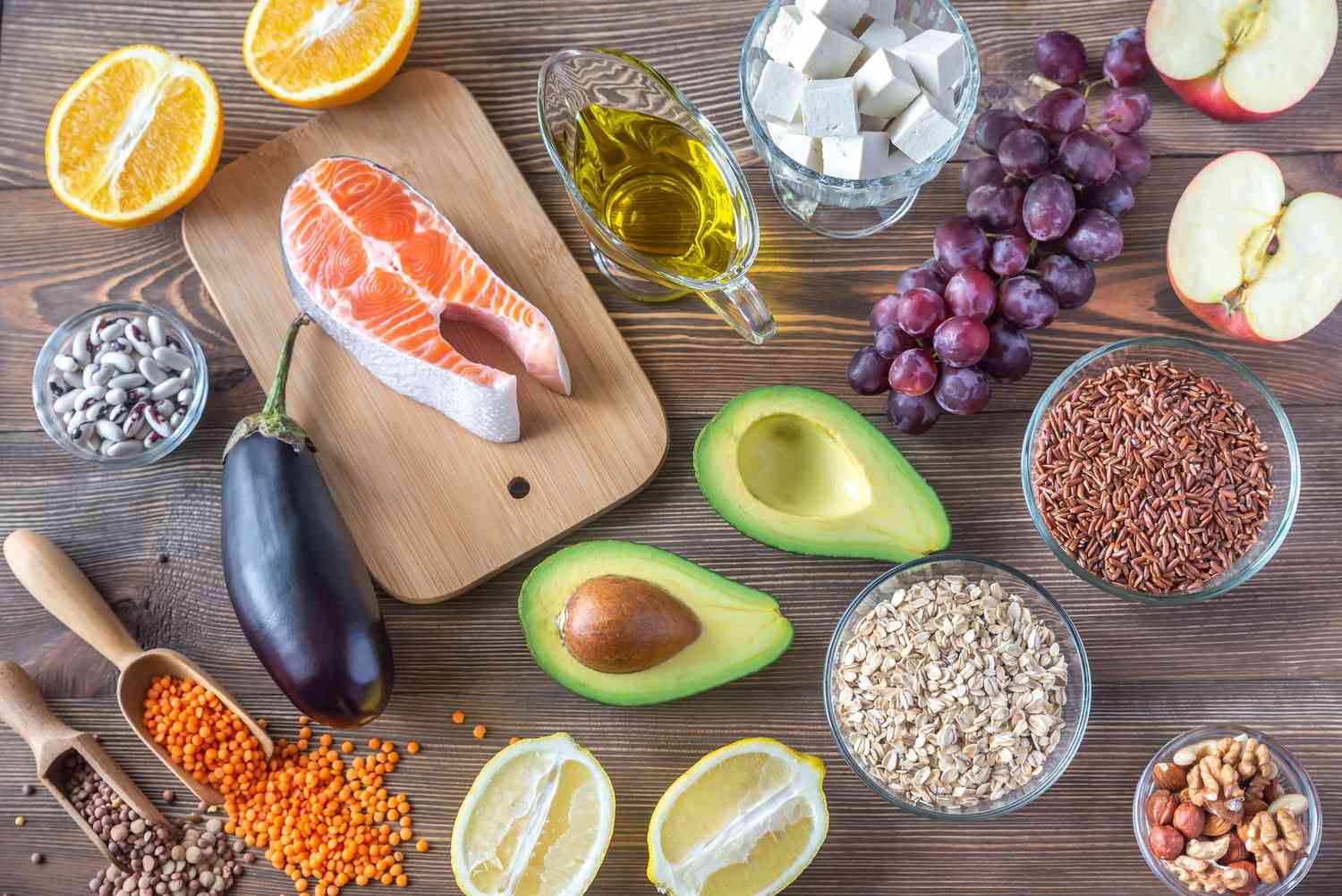Maintaining optimal cholesterol levels is crucial for heart health, and the good news is that your diet plays a significant role in achieving this. By incorporating certain foods into your meals, you can actively contribute to lowering cholesterol levels and promoting cardiovascular well-being. Let’s explore a variety of delicious and nutritious options that can be your allies in the quest for a heart-healthy lifestyle.
- Oats and Barley: Start your day with a heart-boosting breakfast by opting for oats or barley. These grains are rich in beta-glucans, a type of soluble fiber that helps reduce LDL cholesterol levels. Enjoy a warm bowl of oatmeal or try incorporating barley into soups and stews for a wholesome fiber boost.
- Fatty Fish: Fatty fish like salmon, mackerel, and trout are abundant in omega-3 fatty acids. These healthy fats have been shown to lower triglycerides and increase HDL cholesterol levels. Aim to include fatty fish in your diet at least twice a week for heart-protective benefits.
- Nuts and Seeds: Almonds, walnuts, chia seeds, and flaxseeds are excellent sources of unsaturated fats, fiber, and omega-3 fatty acids. Snacking on a handful of nuts or adding seeds to your yogurt or smoothie can be a tasty way to promote heart health and manage cholesterol levels.
- Fruits and Berries: Apples, grapes, strawberries, and citrus fruits contain soluble fiber and antioxidants that support heart health. The fiber helps reduce cholesterol absorption, while antioxidants combat oxidative stress. Enjoy a colorful array of fruits as snacks, desserts, or additions to salads.
- Vegetables: Leafy greens, broccoli, and Brussels sprouts are rich in fiber, which binds to cholesterol and aids in its elimination from the body. Additionally, these vegetables provide essential nutrients and antioxidants. Make veggies the star of your meals by incorporating them into stir-fries, salads, and side dishes.
- Olive Oil: Opt for heart-healthy cooking oils like olive oil, which is high in monounsaturated fats. These fats can help lower LDL cholesterol levels while maintaining or even increasing HDL cholesterol. Use olive oil for salad dressings, sautéing, and drizzling over vegetables.
- Legumes: Beans, lentils, and chickpeas are excellent sources of soluble fiber and plant-based proteins. Including legumes in your diet can contribute to lowering cholesterol and promoting overall cardiovascular health. Try adding beans to soups, salads, or as a meat substitute in various dishes.
- Whole Grains: Switching to whole grains like brown rice, quinoa, and whole wheat bread over refined grains can positively impact cholesterol levels. The fiber and nutrients found in whole grains make them a wholesome choice for heart health.
By making mindful choices in your diet, you can actively manage and lower cholesterol levels, reducing the risk of heart disease. Incorporate these heart-healthy foods into your meals, and remember that maintaining a balanced lifestyle, regular exercise, and avoiding excessive saturated and trans fats are equally crucial for overall cardiovascular well-being. Always consult with a healthcare professional for personalized advice tailored to your specific health needs.
